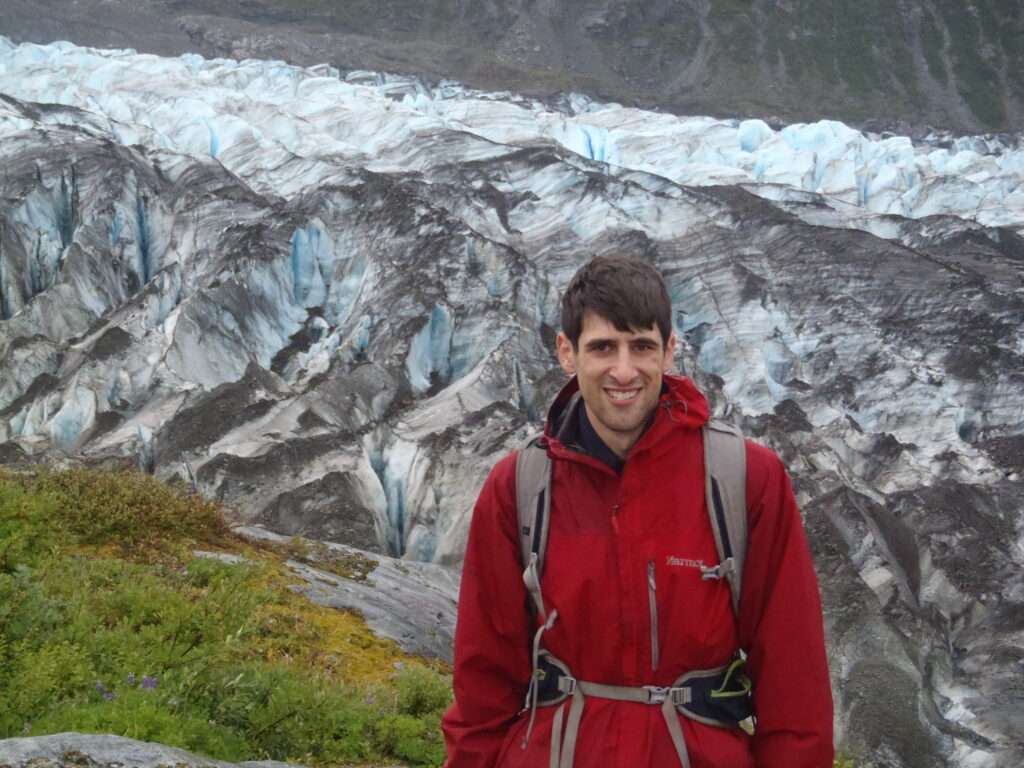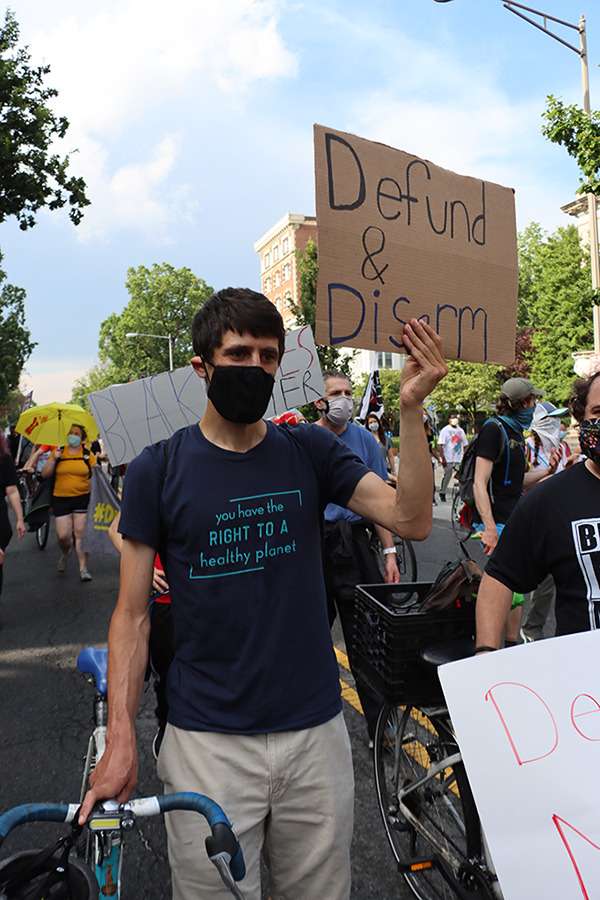
Here at the Center for International Environmental Law (CIEL), we know our strength comes from the people who make up our movement — from our staff, to our partners, to our steadfast supporters. Our “Meet Our Staff” series will introduce you to some of our amazing staff members, who work behind the scenes every day to defend the right to a healthy environment.
Nathaniel Eisen is a Legal Fellow in the Climate & Energy and Environmental Health Programs at CIEL. We spoke with Nathaniel about the challenges currently facing the climate movement, the importance of CIEL’s justice-based approach, his secret superpower, and more.
Tell us a bit about the work that you do at CIEL.
Nathaniel: As a legal fellow, I contribute research, writing, and advocacy to a number of different projects across CIEL’s Environmental Health and Climate & Energy Programs. I’ve helped write a proposal for a new mechanism for financing chemicals management in developing countries under the Strategic Approach to International Chemicals Management (SAICM). Recently, I’ve been writing a report that picks apart the problem of orphan and abandoned oil and gas wells from both a regulatory and financial perspective, with attention to human rights concerns, and in a global context. In addition, I’ve contributed to a number of pieces including one on National Human Rights Institutions and one on Carbon Markets, aimed at actors within the United Nations Framework Convention on Climate Change (UNFCCC) and others at the nexus of human rights and climate change.
What did you do before joining CIEL’s staff?
N: Most recently before joining the staff at CIEL, I did consultancy work with the East-West Management Institute, which is a non-profit based in New York that focuses on the regions of east Asia and eastern Europe. I helped to develop their open-data portal on forest policy within a few countries located in southeast Asia. Before that, I was working to obtain my law and policy degrees at NYU Law and the Kennedy School of Government studying international law and development economics. I’ve also previously worked as a community organizer on electoral and policy campaigns.
What is one of your favorite memories from work?
N: One of my favorite memories was when everyone at CIEL said our recent goodbye to a former staff member, Karin Cicelski, who happened to be my first friend when I joined the organization. She made the office a really welcoming environment for me as a new member of the staff.
Another one of my favorite memories was the series of conversations that I had with fellow CIEL staff members, Steven Feit and Jane Patton,while we were working to formulate a comment that was about a proposed rule that focused on financial assurances for the chemicals manufacturing industry. Despite working on it for several weeks and getting a bit tangled up in all the technical details we had some really good laughs “together” by Zoom.
Why do you think the work you do/CIEL does is important?
N: Fundamentally, the work is about justice: that’s the value that I see as really representing the core of the organization and my work within it. This includes holding polluters responsible for the problems that they have created, ensuring that everyone has a healthy and sustainable environment in which they can live and thrive, and ensuring that the burdens of an industrial society don’t fall disproportionately on certain groups of people.

What do you think is the biggest challenge facing the movement right now?
N: This is very unoriginal, but I think that the biggest challenge is the manipulation of and complete disregard for the truth by certain politicians and corporations. People with different moral and political beliefs not even being able to agree on what’s happening around them is scary. This trend of losing common ground makes it much more challenging to build the popular movements and to pass the legislation that we desperately need in order to address the monumental environmental challenges we’re facing.
What do you think the best ways to get involved are for individuals who are looking to make positive impacts on the environment?
N: I think that the best way to work on any issue you care about is to follow your passions, whether that be through the approach of science, or politics, or art, or economics. Put in the time to reflect on your values and identify what is most motivating for you. That way, you will be able to find the strategy that is truest to yourself and the most sustainable means to make substantive change in the long term.
What do you like to do in your free time?
N: I read, garden, and play a lot of ultimate frisbee (which I hope to get back into once it’s permitted by COVID restrictions). Everyone I work with closely at CIEL has probably heard more than they want to about the vegetables I’m growing in my garden — tomatoes, cucumbers, peppers, greens, as well as herbs, and flowers.
Tell us something people would be surprised to learn about you!
N: When I was in high school, I performed spoken word poetry for my high school’s slam poetry team under the pen name “Nutmeg.”
What is your secret superpower?
My secret superpower is asking questions. I worked on the newspapers at my high school and college. I’ve been lucky that several of the projects that I’ve worked on with CIEL have involved having the opportunity to ask experts for their input regarding policy papers and speaking with staff at other NGOs and at National Human Rights Institutions about their work on climate change adaptation and climate justice. I also find that this superpower comes in handy when it comes to internal operations at CIEL, since it gives me the chance to ask questions about our organization’s strategies.
Interviewed by Owen Torrey, Communications Intern
Originally posted on March 29, 2021
